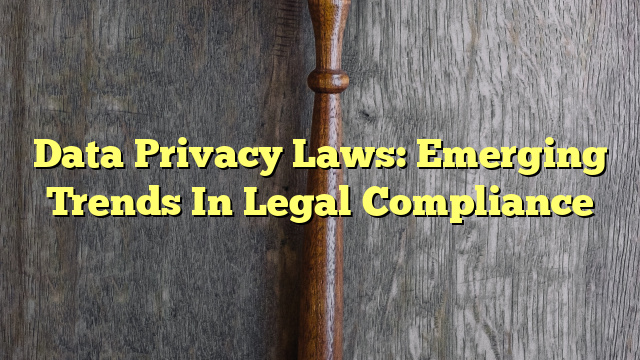Table of Contents
New Privacy Laws in 2023
In 2023, several new privacy laws will be going into effect around the world. These laws aim to strengthen data protection and give individuals more control over their personal information. One of the notable laws is the European Union’s General Data Protection Regulation (GDPR), which will be fully enforced starting in 2023. The GDPR introduces stricter rules for data processing, consent, and individual rights.
Another significant law is the California Privacy Rights Act (CPRA), which expands upon the existing California Consumer Privacy Act (CCPA). The CPRA enhances consumer privacy rights and imposes additional obligations on businesses that collect and process personal information.
These new privacy laws reflect a global trend towards stronger data protection measures and increased transparency in data handling practices.
Trends in Data Privacy 2023
As data privacy becomes an increasingly important issue, several trends are emerging in 2023. One of the key trends is the focus on individual rights and consent. Privacy laws are now placing more emphasis on obtaining explicit consent from individuals before their data can be collected and processed.
Another trend is the implementation of stricter data breach notification requirements. Organizations are now required to promptly notify individuals and authorities in the event of a data breach, ensuring timely action can be taken to mitigate potential harm.
Additionally, there is a growing trend towards cross-border data transfers. With the increasing globalization of businesses, privacy laws are addressing the challenges of transferring personal data across borders while ensuring adequate protection and compliance with local regulations.
The New Law Protecting Data Privacy
One of the new laws that aims to protect data privacy is the Data Privacy Act. This law establishes comprehensive guidelines for the collection, processing, and storage of personal data. It grants individuals certain rights, such as the right to access, correct, and delete their personal information.
The Data Privacy Act also imposes obligations on organizations, requiring them to implement appropriate security measures to protect personal data and obtain consent before collecting or processing information. Non-compliance with the law can result in significant fines and penalties.
Data Privacy in Compliance
Data privacy in compliance refers to the efforts made by organizations to adhere to privacy laws and regulations. Compliance involves implementing policies, procedures, and technical measures to ensure the protection of personal data and the rights of individuals.
Organizations must conduct privacy impact assessments, establish data protection policies, and provide training to employees on data privacy best practices. They must also regularly review and update their privacy practices to stay in line with evolving legal requirements.
By prioritizing data privacy compliance, organizations can build trust with their customers, avoid legal consequences, and demonstrate their commitment to protecting personal information.

